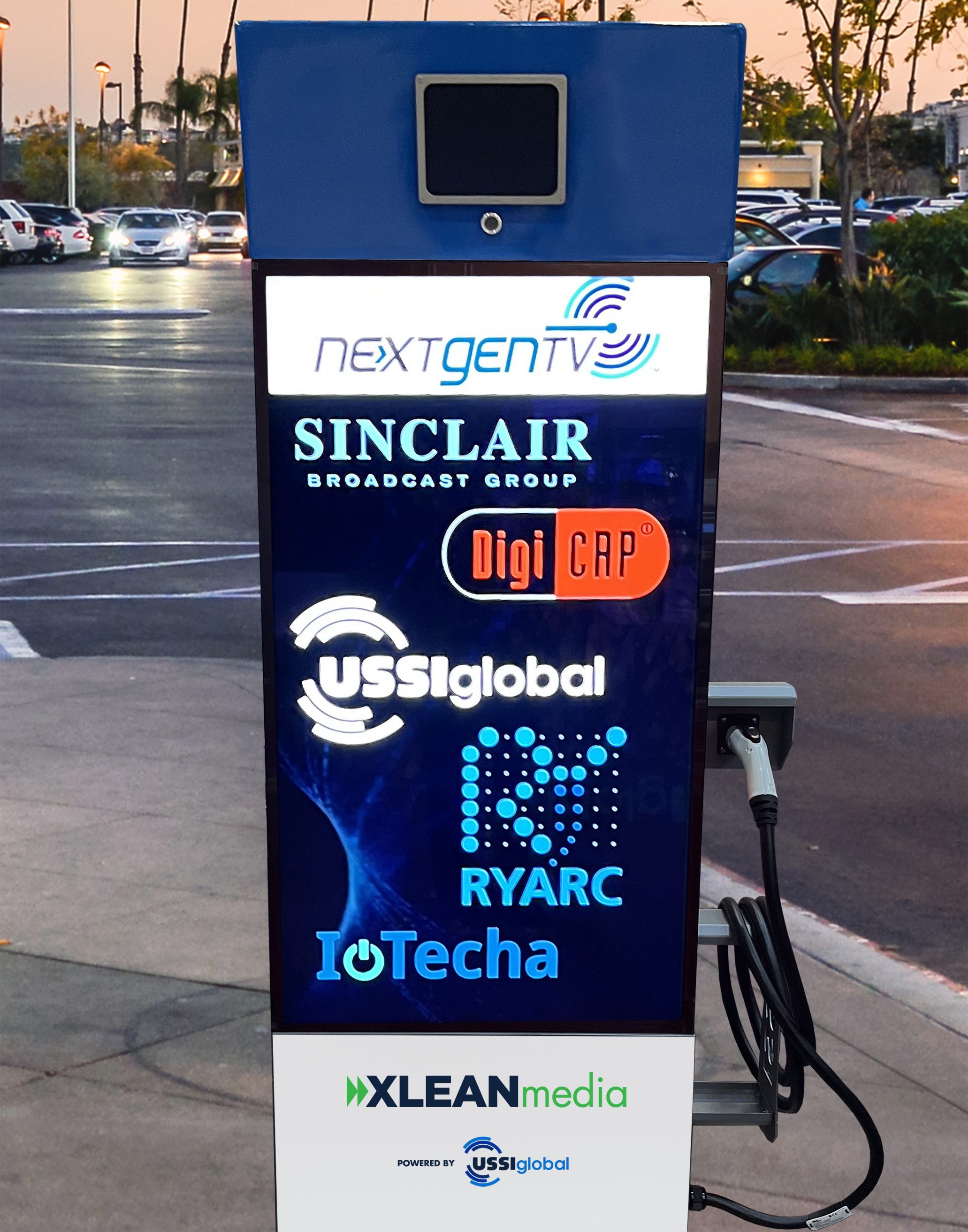
MELBOURNE, Fla—At the 2023 NAB Show, April 15-19 in Las Vegas, USSI Global will conduct a proof of concept demo using ATSC 3.0 to show how the NextGen TV standard can be used for digital signage applications.
The demo—which targets the rapidly evolving world digital out of home (DOOH) market—will take place at the NextGen TV Korean Alliance booth W4126 in the West Hall of the LVCC. USSI Global, a provider of customized network, broadcast and digital signage systems and services, will show a kiosk that utilizes a variety of file-based content broadcasted by Sinclair, received by DigiCAP, conditionally selected by AdMobilize, played out by Ryarc CMS, and displayed on a 55-inch Samsung. The system also supports live streaming (such as emergency alerts or breaking news) and includes directional audio benefits that are ideal for outdoor pedestrian operation in Smart Cities.
“Businesses are effectively using digital signage software to display dynamic content on their outdoor digital signage to draw people into their stores,” said Anthony Morelli, COO, USSI Global. The Broadcast reputation as a trusted source of local content is amplified with the multimedia delivery capabilities of ATSC 3.0. Our mission at NAB is to convey the real-world value and benefits that broadcast and digital signage convergence offers. We believe that outdoor kiosks provide a compelling foundation for the two mediums to join forces, generate revenue for all parties, and drive foot traffic for local businesses.”
Ted Korte, USSI Global Vice President of Technology, said that the ATSC 3.0 standard will bring important benefits to digital signage network operators, content owners and advertisers that include high-speed data file transfers, improved bandwidth management, reliability, determinism, and more refined automated workflows. USSI Global has integrated a broadcast-quality media server into the kiosk to ingest fresh broadcast and out-of-home content, and play out content based on customer-defined criteria, according to the company. Built-in computer vision analytics will also make decisions on what content to play when, which includes switching between live broadcast and digital signage content as warranted.
“There may be breaking news including severe weather updates, road closings and Amber Alerts that come from local broadcasters, which would interrupt rotational digital signage content,” said Korte. “The broadcaster serving the DMA has only one file transfer to televisions, mobile devices and any number of kiosks located in the same market. It takes the highly efficient one-to-many broadcast model into the unique out-of-home media world on displays that essentially demand consumer attention as a first mover of information to a final message before purchase.”
NextGen TV services will also provide what Korte calls “perishable content,” such as general news breaks and sports updates, that generate real-time audience attraction. “It’s about delivering compelling content to audiences while ripe which, when coupled with more contextual digital signage content, offers a powerful hyper-local experience,” said Korte. “Broadcasting is about public service and communications, and we believe that bringing the two mediums together has value for broader-reaching connected initiatives including Smart Cities.”







